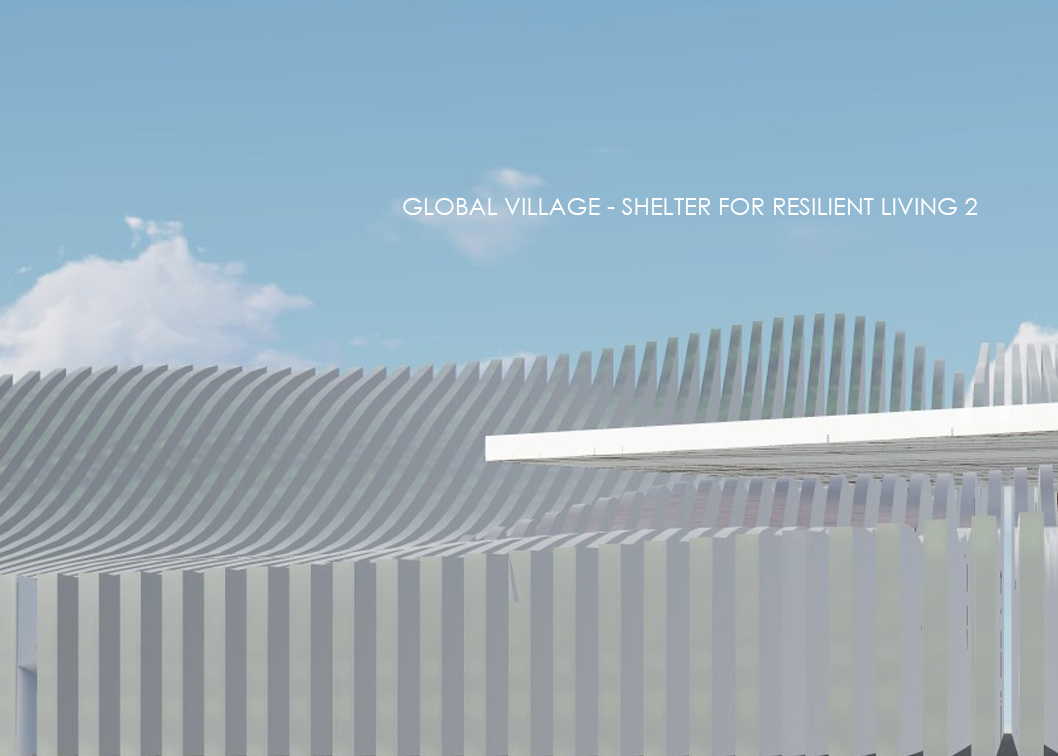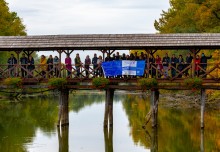DATE 21-22nd of November 2023.
VENUE Salon of the Belgrade City Museum, Bulevar kralja Aleksandra 30, Belgrade
ORGANISERS Faculty of Architecture in Belgrade, Balkan Architectural Biennale and International Society of City and Regional Planners – ISOCARP1
DESCRIPTION
We live in a Refugee World, fleeing from ourselves. We are nomads, thus constant moving is our stress and release. Can we find a shelter in Global World?
Local and customary patterns and ways of life are disintegrating. In this situation, “iconic nomads” are formed and mature as representatives of local cultures. They bear collective and personal identity, and as such, they contribute to the formation of a global village by embracing components of variety and developing new socio-cultural networks. The conference will address the benefits and drawbacks of this paradigm from the architectural, urban-morphological, technological, and planning perspectives.
SPECIAL BENEFITS
Selected papers will be considered for publishing in scientific journal Serbian Architectural Journal – SAJ and in monograph by Cambridge Scholars Publishing Limited”.
THEMATIC SESSIONS
1. ARCHITECTURE OF GLOBAL VILLAGE: PATTERNS, FORMS, SYSTEMS
Modern life and the new networks it provides create the need for new forms of architecture in the global village. The session welcomes new ideas and visions of architectural manifestations of the global village. The discussion will focus on how architecture can reflect the diversity and interconnectedness of the modern world while also addressing issues such as sustainability and cultural preservation. Participants are encouraged to share their perspectives on how architecture can shape and enhance our experiences in the global village.
2. PLANNING AND ARRANGING THE GLOBAL VILLAGE: INSTRUMENTS AND MODELS
Participants will learn about the significance of implementing sustainable practises into the planning and upkeep of common areas during this workshop. They will also investigate techniques for encouraging community engagement and participation in the establishment and maintenance of these places. Attendees will also investigate options for revitalising and regenerating neglected or underutilised places in order to develop healthier and more sustainable communities in the global village.
3. MODERN TECHNOLOGIES IN RISK MANAGEMENT OF TERRITORIES
Modern technology will be elaborated as an instrument of providing shared and healthy places in global village. Healthy and green spaces and places are one of the main values that global villagers respect. The process of creation, assessment and regeneration of places are the main aspects of this session. The session aims to explore how ICT can promote and maintain healthy and green spaces in our communities, and how we can assess the impact of these spaces on our well-being. It also seeks to discuss strategies for regenerating neglected or damaged areas to create more sustainable and liveable environments in the global village.
4. FORMS OF MOVEMENT AND MOBILITY MANAGEMENT IN THE GLOBAL VILLAGE
The session will discuss the new modes and alternatives in transport systems, emphasising mobility and movement for resilience. Special aspect will be on the social characteristics of mobility, cohesiveness’, placemaking, and place sharing in urban design and planning by enabling and providing mobility management. The aim is to explore innovative approaches to transportation that prioritise accessibility, sustainability, and inclusivity. The session will also examine how these new modes of transport can contribute to the development of more livable and resilient cities.
5. THE ROLE OF URBAN PLANNERS IN MANAGING THE CLIMATE TRANSITION
Prof. Pietro Elisei, ISOCARP President
Critical objectives set both at EU and Global level try to solve critical and relevant issue related to achievement of carbon neutrality and zero land take. To accomplish such objectives require to change and innovate the classical categories of Urban and Regional Planners. This session will focus on how to translate in the daily practices the ambition of key policies (e.g. EU Green Deal, Agenda 2030) and how to use in design and implementation the request of overarching instruments or programmes (e.g. The New European Bauhaus, The EUI and other related initiatives) through showing real implemented cases in Urban and Rural Contexts (Key topics: Nature Based Solutions, PEDs and Energy Communities, Urban Regeneration, Culture Heritage as driver for creating local sustainable economies). Finally, a special attention is paid to the issue of depopulating small and medium sized cities, especially in South-East Europe.
6. NEW MODELS OF ARCHITECTURE IN TRANSITION
Prof. Dr Mihajlo Zinoski
Faculty of Architecture, ‘Ss Cyril and Methodius’ University in Skopje, Macedonia
The real estate market and liberalisation of building industry, transforms the built environment radically in past two decades. Therefore architectural practice as well try to respond by attempts of establish contemporary paradigms of objective reality which used to be determinate by specific functional typologies and standards in the past period of socialist modernism in Macedonia. Under the influence of socio-economic, cultural, political and liberalisation and proprietary changes of market today, the emerging architectural mixed use or hybrid typologies are evidence of transformations, and need to be research as phenomenology of build space.
The problem area of this thematic session should research the role of architectural methods, techniques and classification of emerging new models of buildings with program integration.
7. CONTEMPORARY PERSPECTIVES OF ARCHITECTURAL THEORY IN BALKAN REGION – FROM 19TH CENTURY TO THE ERA OF GLOBALISATION
Prof. dr Vladimir Stevanovič, BAB organization, Marko Stojanović. BAB organization
8. RESILIENT CITIES IN THE ERA OF GLOBALIZATION: URBAN INTERVENTIONS TOWARDS A SUSTAINABLE FUTURE
Prof. dr John Kiousopoulos, Dr.Evgenia Tousi and Dr.Lazoglou Miltiadis
In the era of globalization, the sense of place has changed dramatically over the past decades. Cross-border collaborations alter traditional forms of transactions, affecting capital mobility, human settlements, and activities. Modern technologies facilitate non-spatial forms of interaction, shaping the communities of the future. However, preserving tangible and intangible elements of urban collective memory has become more crucial than ever. Resilient cities play a critical role in ensuring the sustainability of an area at the local/ regional/ national scale. Resilience has been adumbrated through the lens of cultural, socio-economic, and environmental sustainability. In this context, this special session opens dialogue on urban resilience in the era of globalization, welcoming interdisciplinary contributions from around the world.
9. HEALTHY city_HEALTHY people: designing future cities for “mind body and soul”
dr Jelena Marić
High levels of stress, pollution, pandemic, and other challenges of contemporary lifestyle make health the crucial resource of the XXI century. An evolutionary paradigm of health comprehension, promoted by the World Health Organization, represents health as much more than the simple absence of a disease or trauma, as it was previously considered. This transformation shift focused on overall psychological and mental well-being has (re)introduced terms and phenomena such as prevention, public health, natural environment, and ecological sustainability as an integral part of healthcare. The “mind, body and soul” approach has emerged as an outcome, or even a necessity due to a modern, hectic, and stress-full lifestyle, characteristic for dense and urban areas, where stress represents one of the four major health risk factors. According to recent studies, more than 64% of health outcomes depend on the environment that we live in. Therefore, we, as urbanists and architects, can successfully heal people by designing healthy and therapeutic environments.
DATES
Abstract submission: 20th of July 2023.
Paper Submission: 10th of September 2023.
FEE
Early bird fee 60euro before 15st of July2023.
Regular fee 70euro before 30th of September 2023.
Late fee 100euro before 15th of October 2023.
40% discount for participants who are taking part into international exhibition.
30% discount for participants who are members of BAB partners.
Conference conceptor and Editor in Chief
Tatjana Mrdjenovic, PhD, Research Associate
BAB commissioner








